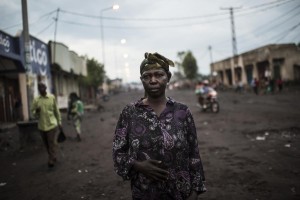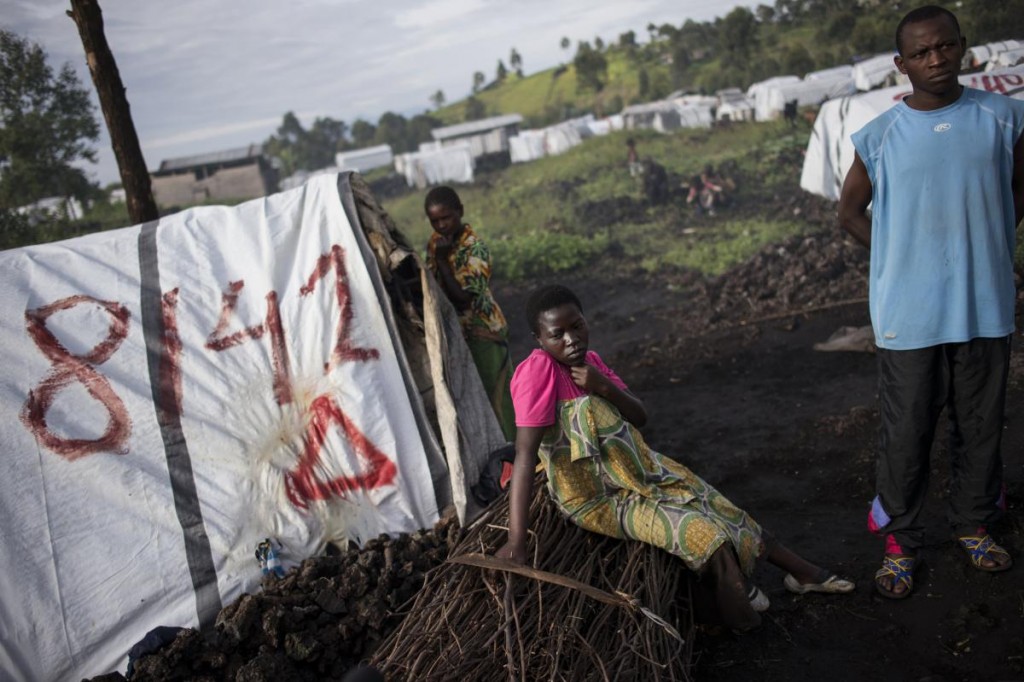UN human rights experts say women have suffered more violence than anyone else in South Sudan. The UN’s refugee agency also announced that there are now over one million South Sudanese refugees in neighboring countries.

The UN refugee agency said on Friday, September 16, that the number of South Sudanese refugees sheltering in neighboring countries has passed the one million mark. Renewed fierce fighting has pushed nearly 200,000 people to flee the war-scarred nation since July.
On Thursday September 15, a three member team of experts from the United Nations Commission on Human Rights concluded its seven-day visit to South Sudan. The aim of the trip was to monitor and report on the human rights situation in South Sudan, and make recommendations for its improvement.
During their mission to South Sudan, the commissioners, Yasmin Sooka, Kenneth Scott, and Godfrey Musila, had meetings with government representatives, the United Nations Mission in South Sudan (UNMISS) and civil society organizations, which included faith based and community leaders.
The commissioners also visited the UN compound and interacted with the internally displaced persons (IDPs) in Juba, Malakal and Bentiu.
Yasmin Sooka said that the women they met revealed shocking experiences. Older women said they were raped by young men of whom some could have been their grandchildren.
“Women both young and old gave accounts of being gang raped by armed men in uniform. The women also raised the issue of numerous check points mounted by government soldiers who extort multiple taxes from them,” Sooka said at a press briefing in Juba on Thursday. The women, she said, also spoke of the ongoing attacks and killings of women by armed men in uniform while out on “livelihood activities” outside the camps.
The team of commissioners aired their concerns about the diminishing space for civil society activists and journalists in the country. They spoke of ongoing intimidation and harassment which has forced many to flee to neighboring countries.
This statement came a day after a South Sudanese newspaper, Nation Mirror, was shut down the day it published a story on a US-based watchdog investigation into corruption by top officials. There was no clear reason given for the closure. The report by George Clooney’s organization, The Sentry, said leaders of the world’s newest country had profited from a conflict.
Taking action against perpetrators
The UN team met with several stakeholders including government officials. They plan to work with international and regional actors to enable an environment which holds those who committed atrocities accountable.
Sooka said it’s time that the state takes action against perpetrators of rights abuses and crimes committed. This is the only way to break the cycle of impunity in South Sudan. “The Commission is of the view that establishing the institutions under Chapter 5 of the Peace Agreement is absolutely critical to building sustained peace in South Sudan,” she added, referring to the section of the peace agreement that discusses transitional justice, accountability, reconciliation and healing.
The section also calls for an establishment of a court that address atrocities committed from December 2013, when the conflict erupted, until today.
![Women in South Sudan are the victims of extreme sexual violence, according to UN officials [Caitlin McGee/Al Jazeera]](http://abovewhispers.com/wp-content/uploads/2016/02/South-Sudan-Child-Marriage-1-300x169.jpg)
The experts left Juba to continue their journey to Ethiopia and Uganda to meet with various state and community actors and refugees from South Sudan.
Hardships due to violence crisis
While the country is in turmoil, daily life in Juba continues. Roadside shops are still open and markets are operating. Some shops have however closed due to economic hardships caused by the crisis. Prices of goods have tripled in the last three months and traders no longer import more goods from East Africa, as the route to Uganda is currently too dangerous to use.
“Sometimes you can hear gunshots and we only pray that nothing happens.” Sophie, a Juba resident, told DW. She explained that the economic situation is worsening day by day and that ordinary people could afford less and less.
“I am not really happy with what is happening in the country. Many people are going to sleep hungry. Even if you are working, there is no possibility to save money currently in the country,” Sophie added.
As South Sudanese struggle to continue with their daily lives, the political situation remains uncertain. The UN is hoping to send 4,000 extra peacekeepers to the country, but earlier this week, it said that the government had to date not fulfilled its pledge to cooperate.

